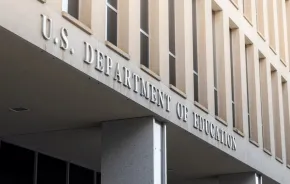
Talk to the parents of any rising elementary, middle or high school student about school choice and they lead with this one question: Is public or private school right for my child? The short answer is: Both are.
Families have many reasons for choosing either a public or private school. Those reasons evolve as a child grows. Entering one type of school doesn’t mean that school will be right for the child later on. Needless to say, there’s a lot to consider. Here are the many pros I hear parents list.
Public schools
- Our family believes in public education and wants to support an institution fundamental to our democratic society.
- We want a neighborhood community for our children.
- Public education is funded by tax dollars and is virtually free (other than contributions to school fundraising that sometimes fund services at schools).
Private schools
- Our student needs support that’s made possible by a smaller class size. (Over my years of practice, I’ve found the average class size in private school ranges from 12 to 20 students.)
- Our family values, including religious affiliation, align better with the philosophy of a particular private school.
- Our student has specialized interests, aptitudes or needs that are best supported by the services of a particular private school.
Often, parents will ask me if a private school education is “better” for their children. My answer: not necessarily. Within both public and private schools, families find high-quality programs, curricula and instruction. Academic rigor depends on the curriculum, the abilities and resources of the teachers, a specific child’s needs and the family’s own support system.
Many assume private schools have better resources, but often it’s public schools that do. In fact, public schools are required to have such resources by law. You don’t always have that guarantee at a private school.
A school’s degree of academic excellence depends on having an engaging curriculum that challenges students to grow while fostering a love of learning and allowing teachers to innovate. Both public and private schools have standards — internal and external — to which they adhere, as well as set goals for teachers. You’ll also find varying levels of support and freedom given to teachers at different schools.
That being the case, no matter the school, a family needs to partner with teachers and reinforce positive learning habits at home. Parents’ language, behavior and faith in a child’s capacity matter to a student’s resilience and persistence — and those qualities have a significant and lasting impact.
So, what should parents consider?
Parents need to look at both elements of the equation: family and school. Before investigating schools, clarify your child’s and your family’s needs. Consider these factors:
- Values — What are your values regarding education? What matters most to you? How does your own learning experience influence choices you make for your child? Does a school need to mirror your values?
- Learning needs — Does your child have special interests, aptitudes or learning needs?
- Sense of community — Where is your child’s primary community situated? What role do you hope the school community will play in your family’s life?
- Cost — How much can you afford to spend on education?
- Commute — Is it reasonable for your family to commute to school on a daily basis for several years? Will you move in order for your child to attend a particular school?
Then, when you do start the hunt for schools, consider these factors:
- Curriculum — Does the curriculum develop essential skills and thinking dispositions? Does it inspire teachers to innovate and adapt? Is it “real world” and relevant?
- Teachers — How long have teachers been at the school? Do they collaborate? Do they have support in the classroom to meet the needs of individual learners? What professional development do they receive?
- Administrators — What is the mission of the school? How does it value the student-teacher dynamic? How do administrators support teachers? How do administrators relate to parents?
- Parent involvement — Can parents be involved in the school? In what ways? How do parents partner with teachers in support of a child? What communication do parents receive from teachers and administrators on a regular basis? What avenues are available to parents to advocate for their student? For all students?
There’s no magic formula that ensures positive education outcomes. Both public and private schools can lead to educational success for a child. How a school fits into each stage of a child’s education — rather than what type of school it is — has a greater impact on a successful education. So, don’t ask, “Public or private?” Ask, “Where will my child thrive?”
Editor's note: This article was first published in 2017, and has been updated for 2021.











